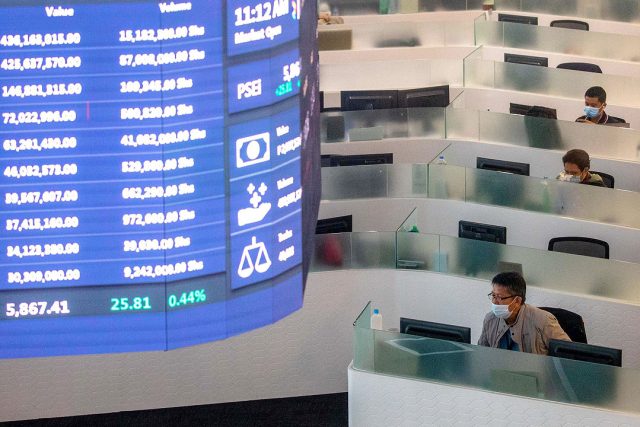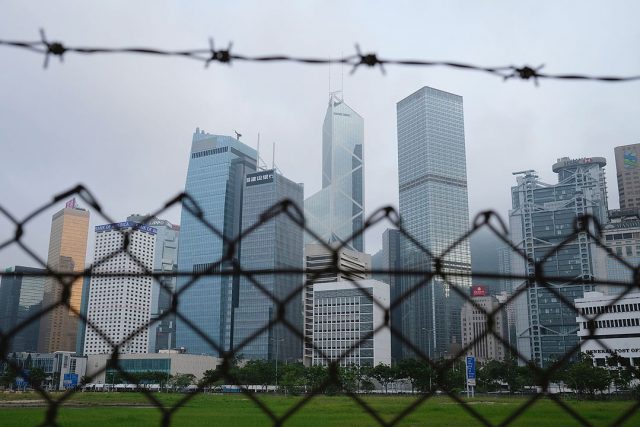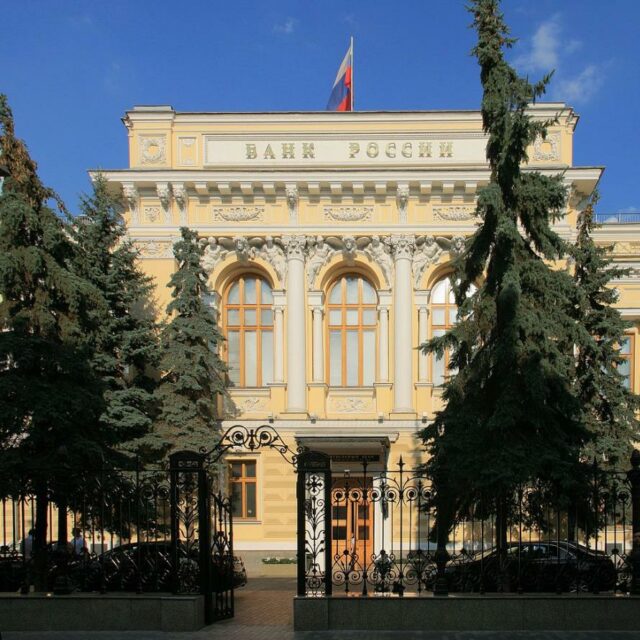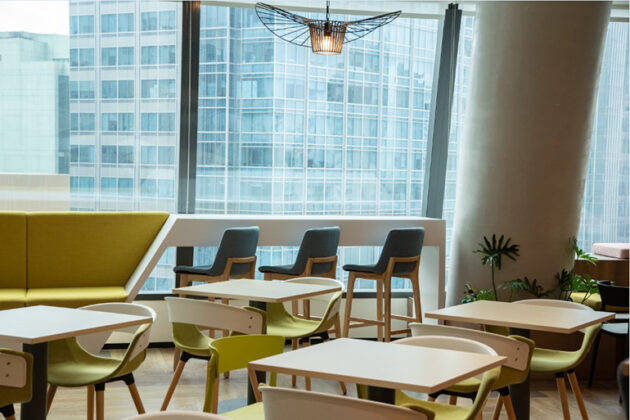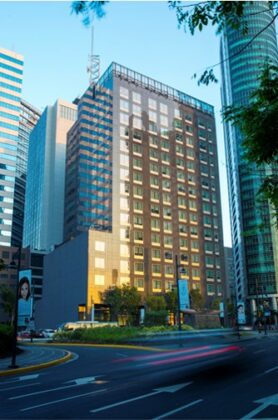KYIV/MOSCOW — President Vladimir Putin put Russia’s nuclear deterrent on high alert on Sunday in the face of a barrage of Western reprisals for his war on Ukraine, which said it had repelled Russian ground forces attacking its biggest cities.
The United States said Mr. Putin was escalating the war with “dangerous rhetoric,” amid signs that the biggest assault on a European state since World War Two was not producing rapid victories, but instead generating a far-reaching and concerted Western response.
Less than four days after it started, the invasion has triggered a Western political, strategic, economic, and corporate response unprecedented in its extent and coordination.
“With this war on Ukraine, the world will never be the same again,” EU’s foreign policy chief Josef Borrell wrote in an opinion piece in the Guardian newspaper.
“It is now, more than ever, the time for societies and alliances to come together to build our future on trust, justice and freedom. It is the moment to stand up and to speak out. Might does not make right. Never did. Never will,” he said.
The 27-nation European Union on Sunday decided for the first time in its history to supply weapons to a country at war. A source told Reuters it would send 450 million euros ($507 million) of weaponry to Ukraine. Borrell at a news conference said EU’s support would include providing fighter jets.
The European Union’s chief executive Ursula von der Leyen expressed support for Ukraine’s membership in an interview with Euronews, saying “they are one of us.” Ukraine, a democratic nation of 44 million people, won independence from Moscow in 1991 at the fall of the Soviet Union and has pushed to join the NATO Western military alliance and the EU, goals Russia vehemently opposes.
The rouble plunged nearly 30% to an all-time low versus the dollar early on Monday, after Western nations on Saturday unveiled harsh sanctions including blocking some banks from the SWIFT international payments system. On Sunday, the president of neutral Switzerland said he expected his government to follow the EU with Russia sanctions and freezing Russian assets.
NEGOTIATIONS
The Ukrainian president’s office said negotiations with Moscow without preconditions would be held at the Belarusian-Ukrainian border. Russian news agency Tass later on Sunday cited an unidentified source as saying the talks would start on Monday morning.
As missiles fell on Ukrainian cities, nearly 400,000 civilians, mainly women, and children have fled into neighboring countries, a UN relief agency said. Hundreds were stranded in Kyiv on Sunday waiting for trains to take them west, away from the fighting.
The capital remained in Ukrainian government hands, with President Volodymyr Zelenskiy rallying his people daily despite Russian shelling of civilian infrastructure.
The EU shut all Russian planes out of its airspace, as did Canada, forcing Russian airline Aeroflot to cancel all flights to European destinations until further notice. With flight options dwindling, the United States and France urged their citizens to consider leaving Russia immediately.
The EU also banned the Russian media outlets RT and Sputnik.
Germany, which had already frozen a planned undersea gas pipeline from Russia, said it would increase defense spending massively, casting off decades of reluctance to match its economic power with military clout.
British oil major BP BP, the biggest foreign investor in Russia, said it was abandoning its stake in state oil company Rosneft at a cost of up to $25 billion, shrinking its oil and gas reserves in half.
Several European subsidiaries of Sberbank Russia, majority-owned by the Russian government, were failing or were likely to fail due to reputational cost of the war in Ukraine, the European Central Bank, the lenders’ supervisor, said.
‘NOT DETERRENCE BUT THREAT’
At least 352 civilians, including 14 children, have been killed and 1,684 people have been wounded, Ukraine’s Health Ministry said.
Mr. Putin, who has called the invasion a “special operation”, thrust an alarming new element into play when he ordered Russia’s “deterrence forces” — which wield nuclear weapons — onto high alert.
He has justified the invasion by saying “neo-Nazis” rule Ukraine and threaten Russia’s security — a charge Kyiv and Western governments say is baseless propaganda.
On Sunday, he cited aggressive statements by NATO leaders and the raft of economic sanctions imposed on Russia by the West.
“Not only do Western countries take unfriendly measures against our country in the economic dimension — I mean the illegal sanctions that everyone knows about very well — but also the top officials of leading NATO countries allow themselves to make aggressive statements with regards to our country,” he said on state television.
Mr. Putin previously referred to his nuclear arsenal in a speech announcing the start of the invasion on Thursday, saying Russia’s response to any country that stood in its way would be immediate and carry “consequences that you have never encountered in your history”.
The EU’s Borrell said Russia had clearly threatened a nuclear attack on countries supporting Ukraine after the invasion. “We are afraid that Russia is not going to stop in Ukraine,” he said.
US Ambassador to the United Nations Linda Thomas-Greenfield, at the UN Security Council, urged “Russia to tone down this dangerous rhetoric regarding nuclear weapons.”
A US defense official said Washington was trying to assess what Putin’s announcement meant, but that it increased the danger from any miscalculation.
Moscow acknowledged that Russian soldiers had been killed and wounded, but said its losses were far lower than those suffered by Ukraine, the Interfax news agency reported. Moscow has not released casualty figures.
In New York, the UN Security Council convened a rare emergency meeting of the UN General Assembly, or all the United Nations’ 193 member states, for Monday.
Rolling protests have been held around the world against the invasion, including in Russia, where almost 6,000 people have been detained at anti-war protests since Thursday, the OVD-Info protest monitor said.
Tens of thousands of people across Europe marched in protest, including more than 100,000 in Berlin.
BATTLE FOR KHARKIV
A Ukrainian state news agency said that Russian troops had blown up a natural gas pipeline in Kharkiv, Ukraine’s second largest city, sending a burning cloud into the sky.
Soon after, Russian armor rolled into Kharkiv, in northwest Ukraine, and witnesses reported firing and explosions. But city authorities said the attack had been repelled.
Reuters was unable to corroborate the information.
Ukrainian forces also appeared to be holding off Russian troops advancing on Kyiv but the Ukrainian armed forces described Sunday as “a difficult time,” saying Russian troops “continue shelling in almost all directions”.
Satellite imagery released by the private Maxar Technologies taken on Sunday showed a 5 km (3.25 mile) long convoy of Russian ground forces including tanks approximately 40 miles (64 km) away heading towards Kyiv. Reuters could not independently verify the images.
“We have withstood and are successfully repelling enemy attacks. The fighting goes on,” Mr. Zelenskiy said in the latest of several video messages from the streets of Kyiv. — Maria Tsvetkova/Reuters

